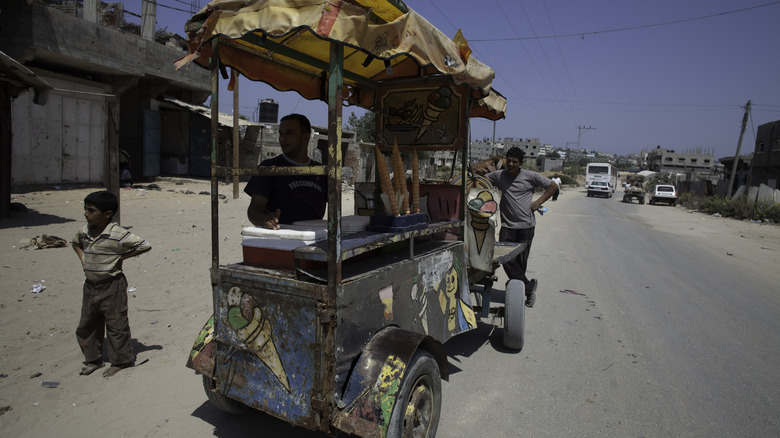The Ice Cream Debacle Currently Affecting The Gaza Strip
As The Jerusalem Post reports, temperatures across Israel and surrounding areas, such as the Palestinian West Bank and Gaza Strip, have soared recently. This has only exacerbated the ongoing electricity crisis in the Gaza Strip, which Al-Monitor reports can leave Gazans without power for as much as 16 hours a day. The effects are felt across daily life as air conditioners sit idle, pumps for wells run dry, and even hospitals slash services for lack of resources.
One casualty of the crisis is that joyous treat that people the world over turn to in order to beat the heat. Ice cream is in short supply in the Gaza Strip, says Reuters, as the available electricity and blackout windows fall short of what is needed to operate freezers. This has left shop owners scrambling to triage loss and find workarounds that keep their wares cold. Some are firing up generators, which can be expensive, while others are ceasing ice cream sales altogether.
Short supply
As beloved as ice cream is, it is still a luxury. Gazans are concurrently dealing with a much more dire food crisis, one that has been building for years and humanitarian organizations warn could become a catastrophe if not dealt with soon.
Middle East Eye traces the roots of the crisis to the 15-year blockade of the Gaza Strip led by neighboring Israel and Egypt. Since the 2007 Hamas takeover of the Gaza Strip, the two larger nations have sealed ports of entry into the region, ostensibly to stem terrorist operations targeting Israel. The effect has been a drastic reduction in exports, high unemployment, beleaguered industry, and well over half of the population on some form of food assistance, says UNICEF.
The recent incursion of Russia into Ukraine is making the food crisis in the Gaza Strip worse, says The Jerusalem Post. As Ukraine is a major supplier of grain and other commodities, regions such as Gaza and the West Bank depend on them — and the global food supply chain — to replenish their larders. The decline in exports due to closed Ukrainian ports has meant that an already struggling region is poised to see even further strain and hardship as the conflict continues at home and abroad.

